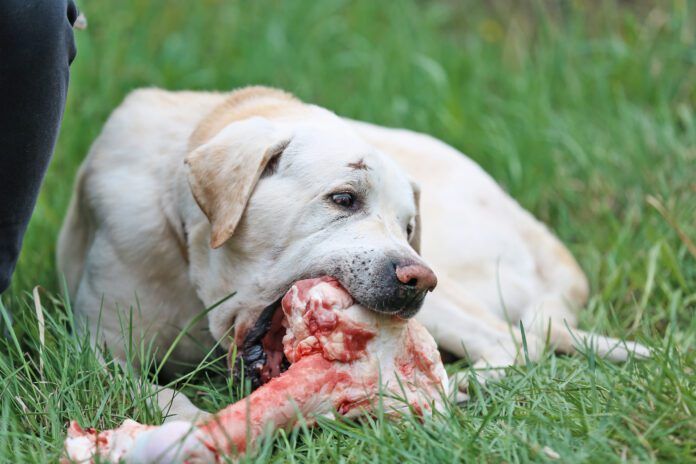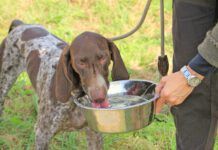If your dog refuses to let you brush his teeth, you need to become creative. It is, after all, the gold standard of canine dental care and the best method of avoiding a $1,000+ professional veterinary teeth cleaning or, worse, dental extractions.
Toothbrushing Steps for an Unwilling Dog
Training methods that teach your dog to let you brush his teeth abound, but they all involve patience. You know that by now, I’m sure, or you wouldn’t be looking for an alternative!
Just to be sure, at this point, you probably tried a soft brush that fits comfortably in the dog’s mouth and maybe a finger brush, which some dogs find less scary. If you haven’t, that’s step one.
And, of course, you’ve exhausted the flavor options of enzymatic dog toothpastes (never use human toothpaste, which must be spit out), starting with just rubbing some on his gums so he decides maybe it tastes pretty good and eventually allows you to “serve” it on a toothbrush.
You probably also contacted your veterinary clinic to see if there’s a vet tech or a groomer who can train you to brush your dog’s teeth.
If Brushing Your Dog’s Teeth Is Impossible
If you truly tried all those mentioned above (no cheating—did you really?), there are other ways to help fight dental disease in your dog. No, they’re not as good as toothbrushing, but they are way better than doing nothing.
Go to the Veterinary Oral Health Council site. While the VOHC does not conduct research itself, it looks at submitted data to see if various dental products meet their standard for acceptance for fighting plaque or calculus or both in pets. They publish a list of dental products for dogs and cats that have passed their standards. The dog list is truly extensive.
The list includes a variety of options to promote good dental health in your dog. You can start with an easy option: a dental dog food diet. There are 12 diet options listed on the site. Some brands work on just tartar, others work on both plaque and tartar. Some are prescription diets, which tend to be more expensive and require a prescription from your veterinarian, but some are diets directly available to consumers.
Your dog turns his nose up at the new food, even after you worked to gradually change his diet. Don’t despair! There are still ways to improve his dental hygiene.
Dental Chews for Dogs Who Won’t Let You Clean Teeth
The VOHC lists 29 dental chews. One is specially prepared rawhide and the others are edible “treat chews.” Some of the chews have multiple health orientations, like joints and teeth. Research shows that dental chews do make a difference.
My dogs are good about toothbrushing (poultry flavor toothpaste preferred), but on days when I am in a hurry or I see some tartar starting, I often add dental chews. My dogs like the Pro Den Plaque Off Dental Bites, which are like quick treats.
For more chew time, they have also gotten Greenies to chew under observation. I admit I personally like the blueberry ones due to the scent, but I don’t think my dogs care.
Sprays, Gels, and Powders Dog Dental Care
If your dog buries his expensive dental chews out in the yard, oral sprays, gels, powders that you add to food or additives for his water can all help your dog to keep healthy gums and teeth. Remember, the VOHC requests research that shows these products are effective to carry a VOHC seal on the package.
Not on the VOHC charts but sworn by for many owners are raw, uncooked, fresh bones. These can be marrow or knuckle bones. It is important to supervise dogs working on fresh bones. You don’t want to have a marrow bone caught on the lower jaw or teeth getting slab fractures from chewing on an old, dry bone.
Dogs prone to digestive upsets and/or pancreatitis, need to have most of the marrow removed. Ideally don’t leave bones around for more than a day or two so they don’t dry out and harden.
With all these options, something should work for your dog. It may take a bit of trial and error, but everything you do can help your dog maintain adequate dental health and avoid an expensive professional cleaning.







I have tried going to the above websites for further information but they never get loaded. I’m not sure if they are current or have changed their web addresses. Wish I could see the list on the WDJ sight.